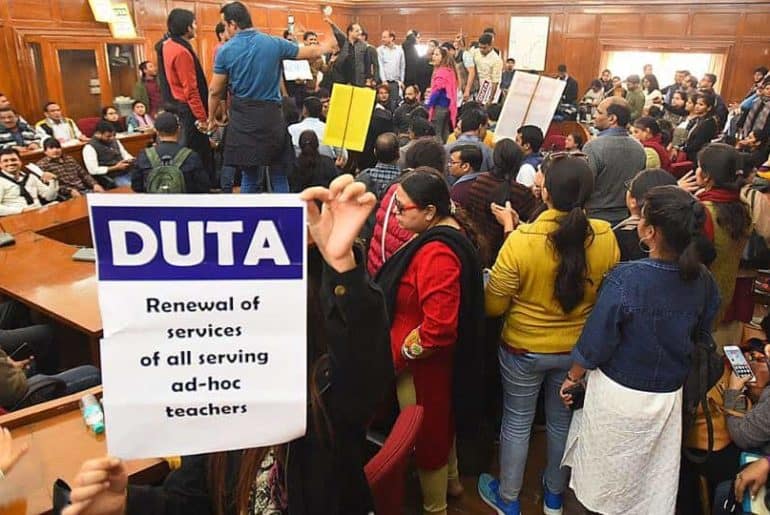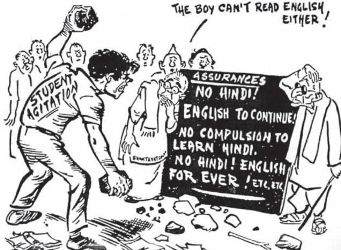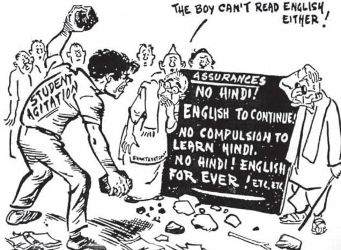On 10th January 2020, University of Delhi (DU) teachers marched from Mandi House to the Parliament Street demanding absorption of all teachers, promotion and pension among other issues. Following them Courting-Arrest, Delhi University Teachers’ Association (DUTA) office bearers were invited to meet the Ministry of Human Resource Development (MHRD) Secretary, UGC Chairperson and Jt. Secretary, MHRD at the Ministry.
Releasing a Press Release, DUTA Office Bearers expressed their discontentment with MHRD’s failure in the implementation of the 5 December Record of Discussions in entirety. The officials have expressed their commitment to implement the same. In this context, DUTA representatives pointed out the inaction on the Vice Chancellor (VC)’s part in implementing the 5th December Record of Discussions with respect to releasing option forms and initiating the promotion process. They also pointed out the non-implementation of the proposed relief on screening criteria and counting of past services.
The release of additional Economically Weaker Sections (EWS) expansions on student-teacher ratio along with University’s (in)action to ensure that no ad hoc is displaced due to the EWS reservation until permanent appointments are made; were also raised.
Dr Agnitra Ghosh, Professor, Kamla Nehru College, Member of DUTA, told DU Beat, “The ruling regime is hell bent on pushing more and more policies of contractualization to destroy public universities. And the DUTA and faculty members of DU are fighting against that. The entire system of ad hocism has created a situation of employment without any security and dignity. Now, the admin further wanted to downgrade ad hoc position to guest, which was resisted. For the last 10 years, DU faculty members have been denied promotions. A university can’t run in this way without basic minimum facilities provided to it’s faculty members. But DU teachers are consistently fighting back and we have also received overwhelming solidarity from the student community of DU.”
With regard to the association’s key demand, one-time absorption of temporary ad-hoc teachers, MHRD stated that only Governemt should take a decision on the same. DUTA expressed their disapproval and sought justness of the fact that several thousand young teachers have been languishing for long years without permanent jobs.
Discussing over the release of the corrected concordance tables for revision of pensions, DUTA officials were informed that the matter was presented before the Finance Ministry. Demand for the withdrawal of the letter dated 21.04.2019 to the University by MHRD was also raised, for which they were asked to pursue the matter with the Finance Ministry.
Apart from this, DUTA submitted a memorandum stating the other long-standing demand of teachers, the resolution of the UGC Regulations 2018, which has a direct bearing on the pending promotions. DUTA officials also expressed their opposition to the Draft New Education Policy 2019’s anti-education recommendations, uniting against the corporatisation of higher education. DUTA reiterated their demand for the VC’s resignation.
Since 4th December 2019, Delhi University Teachers’ Association (DUTA) has been on an indefinite strike and a 24-hour indefinite dharna outside the Vice Chancellor’s Office seeking absorption, promotion and pension for ad hocs and temporary staff.
Feature Image Credits: Hindustan Times
Anandi Sen
[email protected]




